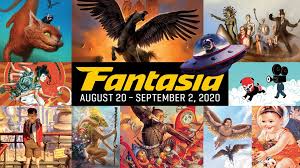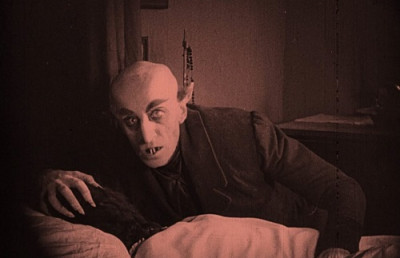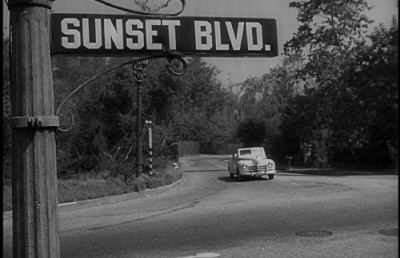A Film Prof at the Cineplex: Armond White and Film Criticism in the Age of the Internet

A friend recently drew my attention to an intriguing podcast hosted by the online journal /Film. The journal features podcasts and online discussion of new film releases, with a particular focus on mainstream Hollywood movies. For this podcast, the film under discussion was Christopher Nolan’s Inception. After exchanging their predominantly positive opinions about the film, the commentators brought Armond White into the conversation. As most Offscreen readers will know, White is a regular contributor to the New York Press and has gained a degree of notoriety lately in his withering criticism of the Rotten Tomatoes Tomatometer and of critic Roger Ebert. White’s notoriety also stems from his tendency to pan films (eg. Toy Story 3 and Avatar as recent examples) that have received considerable accolades from the viewing public and from many critics, and his negative assessment of Inception on the /Film podcast is a case in point.
The podcast and White’s particular role in it got me thinking about something that has certainly preoccupied many other film critics lately, and that is the whole question of the state of film criticism in the age of the internet and, more specifically, whether in the cacophony of voices on the web about every conceivable aspect of film culture, something has been lost or is at least missing. Armond White certainly thinks the current state of film criticism is dire, but I don’t think he is entirely right.
Indeed, I think we really are in a golden age of writing on popular culture thanks in large measure to the explosion of sources on the web. In pursuit of my own varied interests I have encountered fascinating work on sports, politics, music, and, yes, cinema, on blogs and websites, and on the online versions of newspapers, traditional magazines and academic journals. Within the specific context of film culture, virtually every aspect of the subject is richly explored online. So, I don’t agree with the cultural commentators who herald the death of film criticism but I do think that the web has radically transformed it. Currently, anyone with an opinion on cinematic matters and a modicum of technical skill can set up a blog that can function as a conduit for his or her pop culture interests. With so many people using the net to articulate so many opinions on so many subjects, the film critic whose paying job is to express opinions in the same public forum confronts an unprecedented level of competition for the reader’s attention. The academic and the amateur blogger have at least one thing in common, which is that they don’t have the direct pressure of living by their writing as is the case with film critics for hire. Consequently, an academic can write about film largely free of the pressures of market forces, as can anyone who just wants to set up a website or blog about his or her favorite film, filmmaker, genre, performer, etc. A working film critic is always under some degree of pressure to appeal to the kind of wider readership that will draw in both readers and advertisers for the online publication that employs the critic. This has always been the case to some degree, but has become an even more urgent imperative in an era when online publications need a wide readership to even endure, let alone pay their writers a decent wage. So it is very difficult for a film critic to ignore the fact that the most popular movies, ones that have appealed to the widest viewership, will be the most likely films for a critic to write about in order to ensure a larger readership.
This situation doesn’t have to entail the ‘dumbing down’ of discourse about the cinema, but it does make it far more likely that widely distributed mainstream films will be the most widely discussed on the web. So, my concern about the current state of film criticism isn’t so much that there are so many competing voices in cyberspace on the current state of cinema, but that journalists hoping to get paid for participating in this public discourse are under pressure from market forces like never before. More specifically, the dominance of mainstream commercial cinema is reinforced (sometimes with conscious collusion on the part of critics, sometimes unwittingly) by the tendency of critics to focus on films with the widest viewership.
A pessimist could argue that the almost global stranglehold of commercial cinema (much of it emanating from America) on film distribution is not going to go away, so, in a social context where users don’t really accept the premise of paid subscriptions to websites, the vast majority of critics will need to write about commercial films for the sake of survival. But I don’t think pessimism need necessarily devolve into hopeless resignation, and I believe that there are missed opportunities to be pursued by mainstream film critics in the age of the internet. Here is where the situation of Armond White could stand as illustrative of both the film critic’s current dilemma and as a tentative signpost for a way forward. If you get a chance to listen to the aforementioned podcast you will notice that the commentators at /Film generally praise Inception while White attempts to defend his negative response to the film. The commentators self-identify on a couple of occasions as “fans” while White self-identifies as a “critic,” White’s opponents in the debate champion the film’s value as entertainment, while White refers frequently to the film as failing artistically.
This proliferation of binaries (like/dislike entertainment/art fan/critic) certainly suggests a substantial difference between the critical aesthetic of White and the folks at /Film, but the similarities between them are equally striking. White starts off his remarks with a plug for his new book of essays on Michael Jackson, and the /Film host later thanks the broadcast’s generous sponsors. So, in their admittedly different ways, both White and his hosts illustrate that cultural criticism is not undertaken in a vacuum devoid of commercial considerations. Yes, White situates Inception within an historical context that leads him to reference Bergman, Bunuel, Antonioni, etc. but those allusions are brought into service in an exchange of opinions about a newly released and widely distributed mainstream film. Since, as mentioned, just about anyone who wants to express an opinion about a film can find a way to use the internet to do so, one of the few ways that White can attract a large number of readers or listeners is to review mainstream films in a way that really stands out from the crowd.
On the webpage that links to the podcast in question, the /Film editors also include some text excerpts from their extended conversation with White. White is asked about the current state of film criticism and replies, in part, as follows:
We got film critics who are employed professionally by legitimate publications, and we have the world of the internet film writers. The internet has become so pervasive and overwhelming that the internet has stolen the impact and prestige and effect that traditional professional film criticism used to have. As a result of that I think that people who are now employed by the mainstream media are so intimidated by the internet that it seems, when you read mainstream published film critics, that they’ve simply given up being film critics, because they’re afraid of losing readership, because they’re afraid of losing their jobs, probably because publishers and editors simply want to get readers and appease readers, rather than inform and instruct readers. And I think that leads to a kind of anarchy where there are very few people writing about film who know what they’re talking about and who are rigorous about having standards in film. The anarchy, I think, comes from the fact that in mainstream media and the internet, most people who are writing about films are simply writing from a fan’s perspective instead of a truly critical perspective. So what used to be termed “film critics” now is almost meaningless, because you just got a free-for-all of enthusiasms rather than criticism.
While White is right about the extraordinary pressure that professional film critics are under to give the reading public want it is presumed to want, I think his characteristically sweeping indictment of film criticism is unnecessarily bleak. Those writing about film in the mainstream media (whether online or in traditional paper format) and in alternative forums (again, online or elsewhere) would presumably entail just about everyone writing on film except for academics writing in journals that are not yet online. I have the highest respect for my own academic profession, but scholarly journals don’t have a monopoly on “legitimate” (to borrow White’s word) film writing. There are lots of places on the net to go for analysis of films outside of the commercial mainstream, films from various periods in cinema’s rich history and discussion of cinema that moves beyond the ‘I liked it because’ school of criticism. My personal canon of eclectic film sites where I can rely on finding engaging film criticism, work that is both insightful and enjoyable to read, includes, but is certainly not limited to the following: Senses of Cinema, Film International, Bright Lights Film Journal, and (while admitting my bias) the online journal you are currently reading. Each cineaste will have his or her own list of favorite sources in this category, as they will sites for the national cinemas, genres, directors, etc. of interest to them.
Later in the transcript of White’s remarks the /Film editors provoke a comment from the critic which is certainly exemplary of his current status as a provocateur:
I do think it is fair to say that Roger Ebert destroyed film criticism. Because of the wide and far reach of television, he became an example of what a film critic does for too many people. And what he did simply was not criticism. It was simply blather. And it was a kind of purposefully dishonest enthusiasm for product, not real criticism at all…I think he does NOT have the training. I think he simply had the position. I think he does NOT have the training. I’VE got the training. And frankly, I don’t care how that sounds, but the fact is, I’ve got the training. I’m a pedigreed film critic. I’ve studied it. I know it. And I know many other people who’ve studied it as well, studied it seriously. Ebert just simply happened to have the job. And he’s had the job for a long time. He does not have the foundation. He simply got the job. And if you’ve ever seen any of his shows, and ever watched his shows on at least a two-week basis, then you surely saw how he would review, let’s say, eight movies a week and every week liked probably six of them. And that is just simply inherently dishonest. That’s what’s called being a shill. And it’s a tragic thing that that became the example of what a film critic does for too many people. Often he wasn’t practicing criticism at all. Often he would point out gaffes or mistakes in continuity. That’s not criticism. That’s really a pea-brained kind of fan gibberish.
Whether we regard White’s remarks about Ebert as personally cruel or find that he protests rather too much about his own credentials, his central argument about the demise of film criticism just isn’t sound. Indeed, one barometer for me of the richness of the current state of film criticism on the web is that in addition to great sites in the various categories of film culture I’ve already mentioned, there is the possibility of bookmarking one’s favorite critics, not all of whom are writing exclusively about commercial wide distribution work. Again, we will all have our own list of must read critics, but anyone who visits the personal websites of Paul Schrader, Jonathan Rosenbaum or David Bordwell surely could not be persuaded of the absence of informed critical opinion about the cinema. Yet, if we apply White’s remarks strictly to the context of film writing in major dailies, almost all of which now operate online, it may be that White has a point. While working on this piece, I checked the online versions of several major daily newspapers, to see what films would be highlighted for review. On Friday, April 30, 2010, the film sections of The Los Angeles Times, The Boston Globe and The Globe and Mail all lead with reviews of Dinner For Schmucks. The New York Times led with a trio of reviews, for The Extra Man, Dinner For Schmucks, and Charlie St. Cloud, all of course new commercial releases. The Washington Post featured reviews of Dinner For Schmucks and Charlie St. Cloud, while The San Fransisco Chronicle led with a review of Charlie St. Cloud as well. Obviously, my little cook’s tour of the dailies does not constitute a survey with statistical rigor. Yet, White’s grim prognosis does seem to apply to major newspapers, where those purporting to function as film critics are all too often in the service, whether wittingly or not, of the promotion of the latest new commercial releases on behalf of major studios. Yes, there are film critics working for wide circulation newspapers who don’t focus exclusively on the latest blockbusters. Manohla Dargis at The New York Times and Kenneth Turan at the Los Angeles Times come immediately to mind, as do Rick Groen and Liam Lacey at The Globe and Mail. Not only are those who occupy the job position of full time film critic for a major daily newspaper a small and diminishing group, but the number of those who are able to resist the pressure to focus on new, mainstream releases is even smaller.
Why should we care whether informed critical writing about the cinema attains a wide readership or not? How one answers that question may well depend on how one would answer a number of other related questions: can filmgoers be educated to appreciate a range of cinematic experience beyond their comfort zone? Could the dominance of mainstream commercial cinema be even minimally challenged by wider exposure on the part of viewers to information about non-commercial films? Could film critics who espouse films and filmmakers outside of the Hollywood nexus play a constructive role in challenging Hollywood hegemony?
As I intimated earlier, I am pessimistic about how readily any of these questions can be answered affirmatively. But, as I also suggested, pessimism about the success of a campaign does not constitute grounds for immediate surrender, and here I think the situation of a critic like White provides a useful object lesson. Yes, White and others who pursue film criticism as a job are up against a financial imperative. But what we need are more critics who are more consciously resistive to that imperative. I say “consciously resistive” because there is no doubt that the kind of guerilla film criticsm I espouse would entail the slow, methodical expansion of the parameters of the critic’s approach to his or her job. White is an excellent writer whose work brims with perceptive insights. He clearly knows his film history, as his informed allusions to that history in the /Film podcast makes clear. But his wit and erudition on that particular podcast and in his career as a film critic generally are put almost exclusively in the service of either reviewing (often negatively) mainstream films or in denouncing the current state of film criticism. The mainstream media needs more critics who champion undistributed gems, who alert us to neglected periods in film history and who see contemporary commercial films in wider social and artistic contexts. In other words, critics need to adopt a more constructive and educative role about the cinema, which is different from merely expressing an opinion on the merits or demerits of a given film.
How could this possibly be achieved in the current climate, when the only way that online newspapers and journals can pay critics a decent living is to encourage critics to write about the most popular films? One small step would be to encourage film scholars to write for a wider readership. I am not suggesting this because I think that there is anything inherently superior about academy-trained film critics, but because such training does involve the development of close analytical skills and an exposure to the full richness of film history, both invaluable in any kind of informed film criticism. However, publication in the online versions of daily newspapers and magazines is not likely to be attractive to large numbers of academics as long as tenure and promotion policies tend to prioritize publication in juried, specialized academic journals. While I am obviously biased in my positive opinion of Offscreen, there is no doubt in my mind that part of its strength lies in the fact that film professors not only frequently write (with a combination of rigor and accessibility) for its pages but that they also encourage students to embark on submissions to the journal as well. While it is great that there are film profs who write for film journals of this kind, the notion of such profs writing more extensively about film for popular dailies is admittedly a more substantial paradigm shift.
A possible catalyst for such a shift might be ignited by the emergence of a public intellectual with a primary interest in cinema. The notion of the public intellectual is admittedly a slippery one, but I am thinking here of figures who could (and often have) moved comfortably in academic circles but who exhibit a willingness to engage in public discourse via publication in journals and newspapers with wide readership and who do not shrink from public dialogue on television, radio and the web, people such as Christopher Hitchens, Naomi Klein, Noam Chomsky and others. You may or may not agree with the views held by these individuals, but you don’t have to be a political scientist or cultural theorist to have heard of them. Interestingly, public intellectuals often engage to some extent with cinema, if only because it is such a potent mass medium for the expression of ideas and the stimulation of debate. Christopher Hitchens, for example, has been an interview subject in a number of documentaries, such as Eugene Jarecki’s The Trials of Henry Kissinger (2002) and Rick Caine and Debbie Melynk’s Manufacturing Dissent (2007) on Michael Moore. Hitchens has also referred to cinema in his writing, most provocatively in his detailed critique of Michael Moore’s Fahrenheit 9/11 for Slate. With her partner Avi Lewis, Naomi Klein has made The Take (2004), a documentary which investigates globalization through the lens of a particular workers revolt in Argentina. Yet, in the case of Hitchens and Klein, the interest in cinema is subordinate to their political interests, as they would be the first to acknowledge. But would it be too much to hope for that a public intellectual might emerge who regarded cinema as intrinsically important, someone who could play a role, however modest, in convincing a wide audience that there is more to film criticism than the articulation of personal taste?
Armond White and his approach to film criticism could arguably constitute an object lesson in this regard. He is refreshingly honest about how much dross he finds there to be in the current commercial cinema and his individual readings of films are informed by an awareness of film’s cultural history. His name has also come up in a wide range of media, suggesting that he has gained a wide readership, at least for a film critic. But, at this current juncture, White has attained that wide readership mainly for being provocative. Most retorts against his views don’t move beyond a countering of his views on a given film. The podcast again is exemplary here in terms of the basic pattern: White is invited to air his views, mainly because those views run so counter to prevailing consensus. He defends his minority view of a film, the interviewers attempt to counter his views, he offers rejoinders, etc. Though the exchange of views is not without interest, there is a certain solipsism to the whole enterprise.
I am very wary of the danger and arrogance of being prescriptive here, but it seems to me that breaking out of this vicious circle might entail the following: a critic in Armond White’s position, someone with a large (and apparently expanding) readership who writes well and really understands film would use his or her position to review more non mainstream films and would do more film journalism that wasn’t just centered on the expression of personal opinion on a given film. If our imaginary critic was feeling emboldened, he or she could profile an under explored national cinema, or champion a film that has not found a distributor but deserves one. Of course, good writing in all of these areas abound in the so-called alternative weeklies. J. Hoberman continues to enlighten readers of The Village Voice, Marc Savlov, Majorie Baumgarten and Kimberley Jones enliven the film pages of The Austin Chronicle, as do Gerald Peary and Chris Fujiwara for The Boston Phoenix. But, if the movement online has made the major dailies vulnerable, the alternative press, which cannot depend on the kind of advertising base or infrastructure of major media conglomerates, is even more under siege. Since the retirement of Jonathan Rosenbaum, the Chicago Reader is a shade of its former self, at least in terms of film culture, and when J. Hoberman retires from The Village Voice will he be replaced?
Again, even if we concede that White’s critique of film criticism applies to many online dailies and that even alternative weeklies find it increasingly difficult to resist a preoccupation with the current commercial film scene, there remain innumerable sources on the web for good film criticism, as I have been at pains to illustrate. But, again, if such film writing already exists on the web, why not just argue that those who want to seek it out will do so? Because preaching to the converted is easy. Because I believe, perhaps idealistically, that film criticism can have an educative value and that academic film scholars are not the only ones who can use film criticism in this way. Film critics writing for major news organizations wield considerable power by virtue of their ability to attract a mass audience. Would that more of the film critics in that position would consciously strategize to lift the level of public debate about the cinema beyond the exchange of personal views about individual films. There is nothing wrong with having an opinion about a film or in respectfully sharing that opinion with the world via the internet. But as countless online film journals reveal, there is so much more to film criticism than the expression of one’s personal taste. If some of the creative energy and talent abundant among the writers at those journals could seep into the pages of the major dailies then I think that the level of public film discourse could inch just a little higher. So much the better if a few of the best writers from the smaller online film journals were hired by the major dailies. But one word of caution to the aspirant for a wider readership: if you get a job with an online entity like the New York Press try to squeeze a piece or two past your editor on something other than the latest Hollywood blockbuster. Think of it as the pact you make with your own conscience to prevent yourself from feeling like a shill.
I wish to thank Allan Kwan for bringing the podcast featuring Armond White to my attention and to pointing out White’s plug of the newly published Keep Moving, a collection of the critic’s essays on Michael Jackson.
Links:
/Film podcast with Armond White
Christopher Hitchens on Michael Moore for Slate













